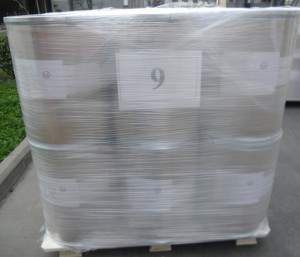What is cellulose and is it bad for you?
What is cellulose and is it bad for you?
Cellulose is a complex carbohydrate that is a structural component of the cell walls of plants. It is composed of long chains of glucose molecules that are linked together by beta-1,4-glycosidic bonds. The chains of glucose molecules are arranged in a linear fashion and are held together by hydrogen bonds. This gives cellulose its strength and rigidity.
Cellulose is the most abundant organic compound on Earth, making up about 33% of all plant matter. It is found in all plant tissues, but is most concentrated in the cell walls of stems, leaves, and roots. Some common sources of cellulose in the human diet include fruits, vegetables, whole grains, nuts, and seeds.
While cellulose is not bad for you, it is indigestible by humans due to the beta-1,4-glycosidic bonds that hold the glucose molecules together. Humans lack the enzyme necessary to break these bonds, so cellulose passes through the digestive system mostly intact. This is why cellulose is often referred to as dietary fiber.
Despite its indigestibility, cellulose plays an important role in maintaining digestive health. When consumed, it adds bulk to the stool and helps to prevent constipation. It also helps to regulate blood sugar levels by slowing the absorption of glucose into the bloodstream.
In addition to its health benefits, cellulose is also used in a variety of industrial applications. One of the most common uses of cellulose is in the production of paper and paper products. Cellulose fibers are also used in the manufacture of textiles, plastics, and building materials.
Cellulose is also used as a filler in many processed foods. Because it is indigestible, it adds bulk to the food without contributing any calories. This can be beneficial for individuals who are trying to manage their weight or reduce their caloric intake.
However, some people may experience digestive discomfort when consuming large amounts of cellulose. This can include symptoms such as bloating, gas, and abdominal discomfort. These symptoms are typically mild and temporary, and can be alleviated by reducing consumption of high-fiber foods.
Overall, cellulose is not bad for you, but rather an important component of a healthy diet. It provides numerous health benefits and is an essential part of maintaining digestive health. While some people may experience mild digestive discomfort when consuming large amounts of cellulose, this is generally not a cause for concern. As with any dietary component, it is important to consume cellulose in moderation and as part of a balanced diet.
